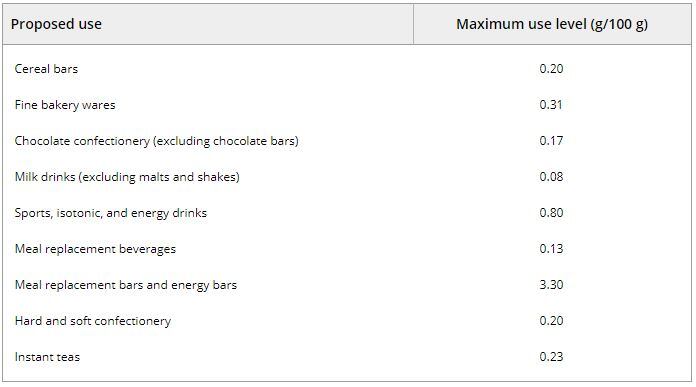In a statement in which the agency confirmed the Novel Food (NF) was safe for the general population at intake levels up to 36 milligrams per kg (mg/kg) body weight (bw) per day, also outlined maximum use levels in food‐uses, which also included cereal bars and instant teas.
The agency warned that if used in conjunction with food supplements containing D‐ribose, the acceptable level of intake (36 mg/kg bw per day) may be exceeded.
“The Panel notes that food supplements containing D‐ribose are already on the market in the EU,” the statement said.
“Their consumption may lead to an additional intake of D‐ribose which is not possible to estimate precisely, due to the variability in the content of d‐ribose in the supplements.
“The Panel also notes that the consumption of some of the food supplements currently on the market could, on its own, result in intakes of d‐ribose higher than those considered safe in the EFSA opinion.”
The decision is good news for the NF’s applicant Bioenergy Life Science, which first filed an application for D-ribose back in March 2008.
In a series of requests by EFSA for additional information from the Minnesota-based firm, the latest findings add credence to the Scientific Opinion adopted by EFSA on the ingredient’s safety in various foods on 18 April 2018.
In that Scientific Opinion, EFSA concluded that, based on the existing data, the safety of the novel food at the intended uses and use levels as proposed by the applicant had not been established.
Mintel GNPD

In its latest evaluation, the Panel cited a search performed in the Mintel Global New Products Database (GNPD) for food supplements that had been introduced in the EU market or rebranded in the last 15 years.
Here the agency identified 10 products containing d‐ribose of which its intake from the recommended uses of these products ranged from 50 to 450mg per day for the majority of the products. Two products cited values of 2,000 and 2,500mg per day.
EFSA said that consumption of 450mg of D‐ribose from food supplements was equivalent to an intake of 7.4 and 6.4mg/kg bw per day for adolescents (14–18 years old) and adults, respectively.
Consumption of 2,500mg per day of D‐ribose from food supplements was equivalent to an intake of 40.8 and 35.7mg/kg bw per day for adolescents (14–18 years old) and adults respectively.
The Panel acknowledged that other food supplements were present on the market with recommended use leading to intakes of D‐ribose over 2,500mg per day.
D-ribose lowdown
D-ribose is a naturally occurring five-carbon sugar and plays a role in adenosine triphosphate (ATP) production that goes in to fuel processes like muscle contraction.
When the ATP stores are exhausted, glucose is converted to ribose and then finally ATP restoring energy levels.
Ribose supplements aid in this process and have featured as a sports nutrition product capable of aiding in energy recovery and reduce muscle soreness.
Bioenergy produces its D-ribose by fermentation of a strain of Bacillus subtilis, which is found in the human gastrointestinal tract.

